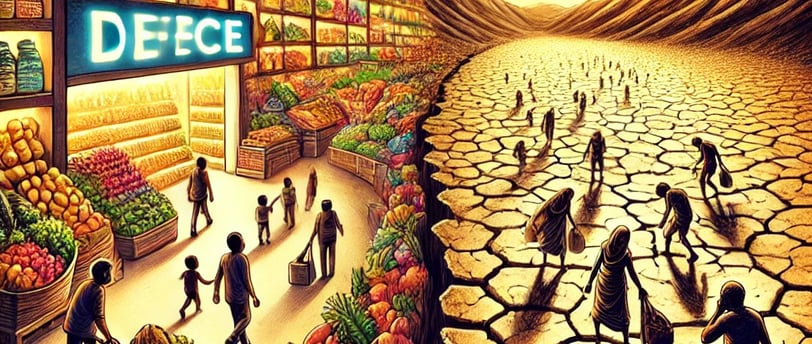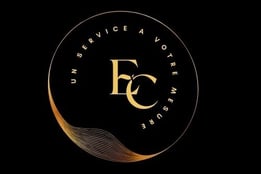CSR and Circular Economy: Sustainable Solutions for a Responsible Future
Discover how Corporate Social Responsibility (CSR) and circular economy initiatives are transforming global challenges into sustainable opportunities. Let’s explore bold, actionable solutions that can shape a more balanced and responsible world.
VEILLE ECONOMIQUEVEILLE SOCIALERSE
Lydie GOYENETCHE
12/31/20243 min read


Global CSR Challenges: The Planet Is Sounding the Alarm—But Who’s Really Listening?
Being “responsible” is no longer enough. Today, companies must be visionary, bold, and—most importantly—not hypocritical. Here’s an overview of the key global CSR challenges.
Spoiler alert: The problems are global, but the solutions are still struggling to cross borders.
1. The Depletion of Food Resources: What Will We Eat Tomorrow?
Let’s start with the basics: food.
Intensive farming, climate change, and our insatiable demand for out-of-season avocados are putting the global food system under immense strain.
Farmland is disappearing.
Freshwater supplies are running low.
One-third of the food produced globally is wasted.
But there’s hope. Circular economy solutions are emerging:
✅ Too Good To Go connects consumers with businesses to sell surplus food, preventing waste. The company has already saved tens of millions of meals worldwide, working with over 120,000 partner businesses.
✅ InFarm transforms urban spaces into vertical farms, cutting transportation emissions and reducing farmland depletion. These modular farming units—placed in supermarkets and restaurants—offer a local, sustainable solution.
✅ Carrefour’s "Zero Waste" program redistributes unsold food to charities and educates customers about food waste.
The message is clear: waste less, produce smarter, and rethink consumption habits.
2. Anti-Waste Laws: A Step Forward or Just a Feel-Good Measure?
France has positioned itself as a leader in anti-waste legislation, but other countries are getting even more creative.
🇰🇷 South Korea has introduced a "pay-as-you-waste" system—charging households based on their food waste volume. A smart way to say: “Waste less, or pay up.”
Innovative companies are stepping up:
✅ Loop is reinventing food packaging by offering returnable, reusable containers. This reduces single-use packaging waste while providing an eco-friendly alternative for brands like Nestlé and Unilever.
✅ Danone is investing in recycling partnerships (like its collaboration with TerraCycle) to turn used packaging into new products, supporting a circular economy.
These initiatives prove that smart policies + innovative business models can lead to real, measurable change.
3. Financial Penalties: Can Money Drive Responsibility?
When good intentions aren’t enough, financial pressure can be a powerful motivator.
In France, supermarkets face fines of €3,750 if they destroy unsold food instead of donating it. But considering their billion-dollar revenues, this fine is a mere slap on the wrist.
Wouldn’t it make sense to scale up these penalties globally? Or, better yet, create financial incentives for sustainable practices?
Some brands are proactively avoiding penalties by integrating sustainability into their business models:
✅ Biocoop sources only from local, organic producers, enforces a strict anti-waste policy, and composts food waste to support regenerative agriculture.
Rather than waiting for regulation, businesses that lead with purpose will be the ones shaping the future.
4. Climate Change: Greenwashing vs. Real Action
Food waste is just one piece of the puzzle—climate change remains the bigger picture.
Rising temperatures threaten global harvests.
Extreme weather events increase food insecurity.
Biodiversity loss accelerates at an alarming rate.
International conferences like the COP summits generate headlines but often lack concrete action.
Fortunately, some private companies aren’t waiting for governments to act:
✅ Patagonia has built an entire brand on sustainability—producing durable products, funding reforestation projects, and reinvesting all profits into environmental initiatives in 2022.
✅ Tesla has disrupted the automotive industry, accelerating the transition to clean energy. Meanwhile, new players like Rivian are pushing commercial electric vehicles to further reduce emissions.
The question isn’t if businesses should act—it’s how fast they can innovate before it’s too late.
5. Moving Forward: Repair or Start Over?
What’s the way out of this mess?
🌱 Develop smarter agricultural technologies
🌍 Encourage more local, sustainable consumption
⚖️ Enforce real regulations—not just symbolic policies
But most importantly: profitability and responsibility are not mutually exclusive.
Leading companies like Too Good To Go, InFarm, Patagonia, Loop, and Biocoop show that sustainability can be a business advantage, not just an obligation.
CSR is at a critical crossroads:
🔹 Will we finally take the road to change?
🔹 Or will we stay stuck in the vicious cycle of passivity?
The good news? Companies combining innovation and social responsibility are already proving that change is possible.
🚀 The question is: who will follow their lead?


EUSKAL CONSEIL
9 rue Iguzki alde
64310 ST PEE SUR NIVELLE
FRANCE
0033782505766
euskalconseil@gmail.com

